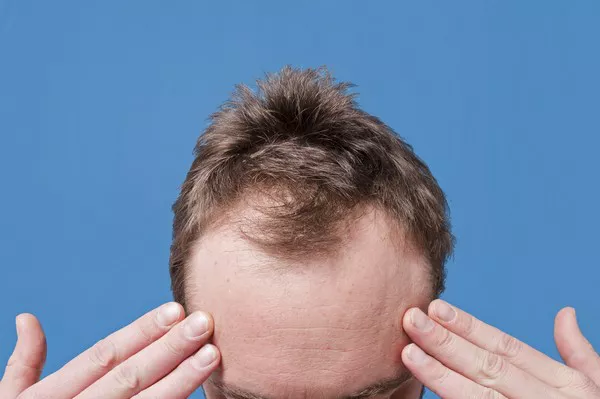Beautiful, luscious hair is often considered a symbol of health and vitality. However, experiencing hair loss can be distressing and alarming. While there are numerous factors that can contribute to hair shedding, one potential culprit that often goes overlooked is Vitamin B12 deficiency. In this article, we delve into the relationship between low B12 levels and hair loss, explore the reasons behind this connection, and discuss potential solutions to address B12 deficiency and promote healthy hair growth.
1. Understanding Vitamin B12
Vitamin B12, also known as cobalamin, is a crucial water-soluble vitamin that plays a vital role in various bodily functions. It is essential for red blood cell formation, DNA synthesis, nerve function, and maintaining the health of the nervous system. B12 is primarily obtained through the consumption of animal-based foods like meat, fish, dairy, and eggs, as well as fortified foods and supplements for those on vegetarian or vegan diets.
2. The Role of B12 in Hair Growth
Hair follicles are highly metabolically active, requiring a constant supply of essential nutrients to support healthy hair growth. Vitamin B12 plays a significant role in this process by supporting cell division and red blood cell production. Red blood cells deliver oxygen and nutrients to hair follicles, promoting their growth and overall health. A deficiency in B12 can disrupt this delicate balance and lead to hair loss.
3. B12 Deficiency and Hair Loss: The Connection
Research suggests that low levels of Vitamin B12 can contribute to hair loss. When the body lacks sufficient B12, it can result in a condition called telogen effluvium. Telogen effluvium is a form of hair loss characterized by a significant increase in hair shedding due to a disruption in the hair growth cycle. During this phase, hair follicles prematurely enter the resting (telogen) phase, leading to increased hair fall.
4. Other Symptoms of B12 Deficiency
Hair loss is not the only symptom of Vitamin B12 deficiency. Individuals experiencing low B12 levels may also exhibit other signs such as fatigue, weakness, pale skin, dizziness, tingling sensations in extremities, and mood changes. If left untreated, B12 deficiency can lead to more severe complications, affecting the nervous system and cognitive function.
5. Who is at Risk for B12 Deficiency?
Certain groups of individuals are at a higher risk of B12 deficiency. These include:
a. Vegans and Vegetarians: Since Vitamin B12 is primarily found in animal-based foods, individuals following strict vegetarian or vegan diets are at an increased risk of deficiency. Incorporating B12-fortified foods or taking supplements can help mitigate this risk.
b. Older Adults: As we age, our ability to absorb B12 from food decreases. Therefore, older adults may have a higher likelihood of B12 deficiency, making regular screenings and supplementation important for this age group.
c. Individuals with Digestive Disorders: Certain digestive disorders, such as Crohn’s disease or celiac disease, can impair the body’s ability to absorb nutrients, including B12. These individuals may require B12 supplements or injections.
d. Gastric Bypass Surgery Patients: Those who have undergone gastric bypass surgery may experience reduced absorption of B12 due to alterations in the digestive tract. Regular monitoring and supplementation are essential for this group.
6. Diagnosing B12 Deficiency
Diagnosing B12 deficiency typically involves a blood test to measure serum B12 levels. However, it’s important to note that a deficiency may not always be apparent through blood tests alone. In some cases, additional tests, such as measuring homocysteine and methylmalonic acid levels, may be necessary to provide a comprehensive assessment of B12 status.
7. Addressing B12 Deficiency and Hair Loss
The good news is that B12 deficiency and its associated hair loss are treatable. If diagnosed with B12 deficiency, healthcare providers may recommend B12 supplements or injections to restore adequate levels in the body. Additionally, incorporating B12-rich foods into the diet can help maintain optimal levels of this essential vitamin.
8. Adopting a Balanced Diet
To ensure adequate intake of B12, individuals can include the following foods in their diet:
1.Lean meats like beef, poultry, and fish
2.Dairy products such as milk, cheese, and yogurt
3.Eggs
4.Fortified plant-based foods, like certain cereals and non-dairy milk alternatives
9. B12 Supplements
For individuals at risk of B12 deficiency or those diagnosed with low levels, supplements are an effective way to boost B12 intake. Supplements are available in various forms, including pills, sublingual tablets, and B12 injections.
10. Monitoring and Prevention
Regular monitoring of B12 levels is crucial for those at risk of deficiency. Preventative measures, such as including B12-rich foods in the diet or taking supplements as recommended by healthcare providers, can help prevent hair loss and maintain overall health.
Conclusion
Understanding the relationship between low B12 levels and hair loss can provide valuable insights into addressing this common concern. B12 deficiency is a manageable condition, and with the right approach, individuals can promote healthy hair growth and overall well-being. If experiencing hair loss or other symptoms of B12 deficiency, seeking professional medical advice and adopting a balanced approach to nutrition can make a significant difference in restoring healthy and vibrant hair.

